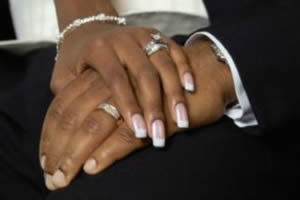Editorial Comment: Ruling on customary law unions laudable

MANY women in unregistered customary unions now have a good chance of receiving, should the unions collapse, some of the assets accumulated during the unions following a legal precedent set by Justice Alfas Chitakunye recently.
But they still have to go to court to activate that precedent, since the statute law and the old un- amended customary law do not recognise such a division of property at the termination of a customary union.
Justice Chitakunye himself called for legal amendments to govern property division at the termination of an unregistered customary union, noting that Parliament had already intervened to ensure that the surviving spouse of such a union was not left destitute when her husband died.
His own judgment started from the position that the customary law position, that the wife in a failed customary law union was entitled to just cooking utensils and linen, was grossly unfair in this case where the couple had lived a prosperous western lifestyle.
He, therefore, was able to move forward and apply general law, and made the sort of settlement that he would have made had the couple lived in a registered Marriage Act union and applied to his court for a formal divorce.
It needs to be remembered that customary law arose in a quite different society and economic world from 21st century Zimbabwe, and it worked fairly well in the pastoral economy and society of the 19th century where there were very few assets.
The homestead of huts was usually moved and rebuilt every few years, and the major assets of the couple were their labour, the husband looking after his share of his family’s livestock and the wife cultivating the home field and looking after homestead and children.
Unfortunately, colonialism locked in the law of the 19th century, usually in its most conservative version, while major social, economic and political revolutions took society into a totally new world during the 20th century. At independence the Government and Parliament recognised this and has steadily amended customary law bringing it into the modern world and basically creating in many areas a single general law from the variety of legal systems applied in colonial times.
A system of law has to be able to adapt to changes in the underlying society or else it becomes a dead letter, useless to everyone.
Just about the only remaining area where customary law still flourishes is in marriage. And here the problems that arise have become worse as there has hardly been a customary union registered under the Customary Marriages Act for some decades.
Many in such unions regard it as simply a stepping stone to a formal registered union under the Marriages Act and so, unlike their grandparents, do not rush off to the District Administrator to have their customary union registered.
The fact that indigenous Zimbabweans had to choose, for all time, which Act would govern their marriage was one of the factors that effectively killed the formal registration of a customary union.
So we agree with the judge that Parliament should ensure that unregistered but formal customary unions (and proof that the families agreed and that lobola was paid is all that is required) should be treated on their dissolution in the same way a registered union is treated. As the judge noted Parliament is already half way there with its recognition of such unions terminating in death.
But we would also urge couples to register their marriage. Customary marriage is not going to die but the trend that it is a step in the process to a marriage openly recognised by church and State is likely to become ever more likely.
A Marriages Act union is technically free and requires just a registered marriage officer, usually a magistrate or a minister of religion appointed as an honorary officer, two witnesses and around one month’s notice.
Many couples want all the extras, the large wedding and the fancy reception, and so delay. But that could easily come later. Every religious minister would be delighted to arrange the small wedding, and would be even more delighted later to preside over a renewal or commemoration of vows at a public gathering of families and friends. So couples do not need to wait.









Comments